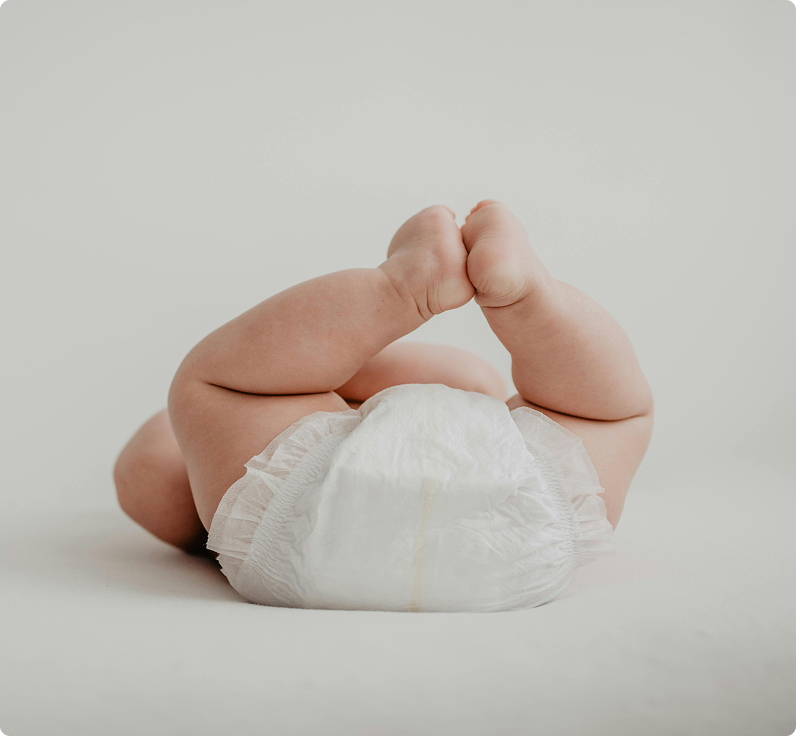Reports in the news have highlighted these issues, especially with PFAS. Some studies have even tested popular diaper brands, revealing that these chemicals can indeed make their way into our environment and, more worryingly, onto our babies’ skin.
What to Look for in Non-Toxic Diapers
So, what should you look for when shopping for non-toxic diapers?
- Totally Chlorine-Free (TCF): This means no chlorine or chlorine derivatives were used in the bleaching process, reducing the risk of dioxins.
- Plant-Based Materials: Look for diapers made with bamboo, cotton, or other plant fibers. These are generally kinder to the skin and the planet.
- No Fragrances or Dyes: If it doesn’t smell like anything or look like a Picasso, it’s probably safer for sensitive skin.
- Certifications: Diaper brands that show off certifications like EWG Verified, OEKO-TEX, or FSC Certified are putting effort into ensuring their products are safe.
- Biodegradability: Some diapers now offer partial biodegradability, helping to reduce landfill waste.
Top Picks for Non-Toxic Diapers in 2025
Let’s dive into the brands that are making parenting a bit easier and safer:
Dyper – This brand has taken the diaper world by storm with their bamboo viscose diapers. Their diapers are free from phthalates, latex, and fragrances. They offer a unique composting service, REDYPER, in some areas.
ECO Boom – Another bamboo contender, ECO Boom diapers are often praised for their softness and absorbency. They’re chlorine-free and biodegradable, making them a solid choice for environmentally friendly parenting.
Happy Little Camper – With a cute name and a commitment to non-GMO cotton blend, these diapers are chlorine-free and devoid of fragrances, parabens, and phthalates.
Healthybaby – Formerly Healthynest, these diapers are the first to be EWG Verified, meaning they meet stringent safety and transparency standards. They’re made with plant-based materials, focusing on developmental support for babies. Even with a higher price tag, many parents feel the peace of mind is worth it.
Joonya – This Australian brand uses bio-based materials for the top and back sheets, ensuring your baby’s skin only touches plant-based polyester. With no parabens or phthalates, theyre a safe bet for sensitive skin.
Kudos – They’ve innovated by being the first to use 100% cotton for the top sheet, which is a significant win for those with babies prone to rashes. Kudos diapers are also pushing towards more plant-based materials, reducing synthetic components.
Little Toes – These diapers are all about natural bamboo, providing a hypoallergenic and antibacterial option. They’re part of the movement towards more sustainable disposables with their moisture-wicking and thermal-regulating properties.
Nest – Nest diapers combine bamboo with a biodegradable plastic backsheet, offering a pretty good biodegradability rate. They’re transparent about their materials and are committed to eco-friendly practices.
Choosing the right diaper isn’t just about keeping your baby dry; it’s about ensuring their health and the health of our planet. Remember, your child will be spending more time in their diaper than any other item of clothing. So make your choice with confidence.

